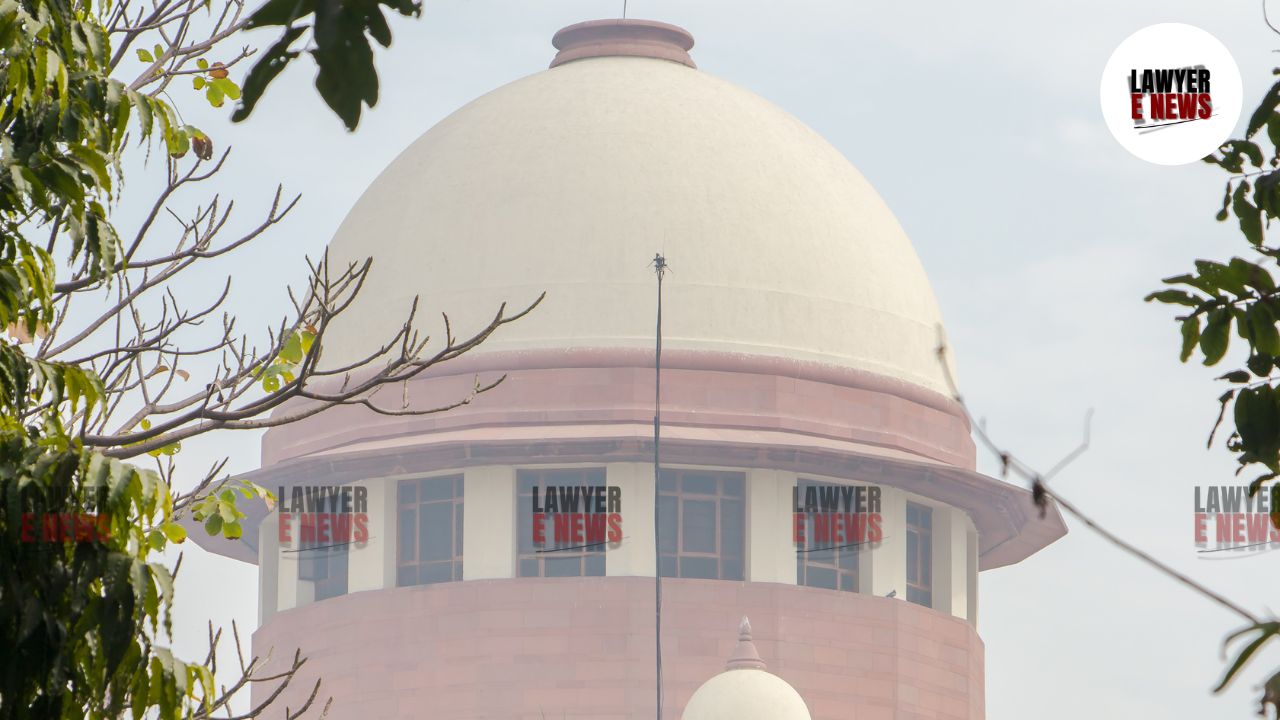-
by Admin
16 February 2026 1:47 PM



“A contract – be it commercial, insurance, sales, service, or employment – is after all a contract… and must be enforced regardless of the relative strengths and weaknesses of the parties” – In a landmark ruling with implications for employment litigation across India, the Supreme Court of India upheld the validity of exclusive jurisdiction clauses in private employment contracts, holding that employees who accept such terms are bound by them, even in disputes over termination of service.
The Court delivered its verdict in two civil appeals—Rakesh Kumar Verma vs. HDFC Bank Ltd. and HDFC Bank Ltd. vs. Deepti Bhatia—involving challenges to orders passed by the Patna High Court and the Delhi High Court, respectively. Both employees had been dismissed from service due to alleged misconduct and had filed civil suits in Patna and Delhi seeking reinstatement. HDFC Bank invoked an exclusive jurisdiction clause in their employment contracts, which stipulated that courts in Mumbai alone would have jurisdiction over any disputes.
While the Patna High Court had accepted HDFC’s position, the Delhi High Court had ruled in favour of the employee. The Supreme Court set aside the Delhi High Court’s judgment and affirmed the decision of the Patna High Court.
“Even in Employment Contracts, Exclusive Jurisdiction Clauses Are Enforceable If the Chosen Court Has Jurisdiction”: Apex Court
The bench of Justices Dipankar Datta and Manmohan ruled that there is no legal bar to enforcing an exclusive jurisdiction clause in private sector employment contracts, as long as the chosen court has jurisdiction and the clause does not bar access to justice entirely.
“Law treats all contracts with equal respect and unless a contract is proved to suffer from any of the vitiating factors, the terms and conditions have to be enforced regardless of the relative strengths and weaknesses of the parties,” the Court observed.
Rejecting the argument that employment contracts should be treated differently because of unequal bargaining power, the Court declared, “To make a distinction for employment contracts on the specious ground that a mighty lion and a timid rabbit are the contracting parties would violate the principle of equality… Contracts should be treated equally, without bias or distinction.”
“Employees Cannot Turn Around and Challenge a Clause They Accepted and Acted Upon”: SC on Rakesh and Deepti's Suits
The Court found that both Rakesh Kumar Verma and Deepti Bhatia had knowingly accepted the terms of their appointment letters, including the clause stating that Mumbai courts alone would have jurisdiction over any service-related dispute.
“Rakesh and Deepti having accepted the terms and conditions of the appointment letter/employment agreement and acted upon its terms by joining their respective posts, they could not have possibly avoided the contract on a second thought,” the Court held.
Referring to its earlier rulings in Swastik Gases v. Indian Oil Corporation, Hakam Singh v. Gammon India Ltd., and ABC Laminart v. A.P. Agencies, the Court reiterated that when a contract clearly specifies a particular forum for dispute resolution, and that forum otherwise has jurisdiction under the law, the clause must be enforced.
“Exclusive Jurisdiction Clause in Employment Contracts Not Hit by Section 28 of Contract Act or Section 20 CPC”: SC Clarifies Legal Position
The Court analyzed Section 28 of the Indian Contract Act and Section 20 of the CPC, holding that exclusive jurisdiction clauses do not take away the right to seek legal remedy, but only channel the proceedings to a particular court agreed upon by the parties.
“Section 28 of the Contract Act does not bar exclusive jurisdiction clauses. What has been barred is the absolute restriction of any party from approaching a legal forum. The right to legal adjudication cannot be taken away… but can be relegated to a set of courts for the ease of the parties,” the Court noted.
The Court also held that Mumbai courts had jurisdiction under the CPC, as the decision to appoint and terminate both employees was taken in Mumbai, and their appointment letters were issued from Mumbai.
Delhi High Court’s Ruling in Vishal Gupta Overruled; Court Refuses to Carve Out Special Rule for Employment Disputes
The Supreme Court explicitly overruled the Delhi High Court’s decision in Vishal Gupta v. L&T Finance, which had held that exclusive jurisdiction clauses are not binding in employment disputes due to unequal bargaining power.
The Court observed, “We are unable to approve the law laid down in Vishal Gupta… Unequal bargaining power is not unique to contracts of personal service… In many areas, such as business, commerce, or real estate, contracts may involve parties with dissimilar levels of strength.”
The bench added, “A contract is a contract, and employment contracts are no exception. The mere presence of a power imbalance does not invalidate mutually agreed contractual terms.”
Relief Granted: Plaint to Be Returned for Filing in Mumbai, Not Rejected
While upholding HDFC Bank’s contention, the Court found a procedural error in the Patna High Court’s direction to reject the plaint under Order VII Rule 11 CPC. It clarified that the proper course was to return the plaint under Order VII Rule 10 for filing in the competent court in Mumbai.
The Court directed, “The trial court shall return the plaint to Rakesh for presentation before the competent court in Mumbai. Deepti’s plaint also has to be returned for filing before the Mumbai court. Alternatively, they may withdraw their suits and file fresh suits in Mumbai.”
It also granted liberty to both to amend their plaints and, if needed, to plead limitation exemptions under Order VII Rule 6 CPC if filing afresh.
Date of Decision: April 8, 2025
